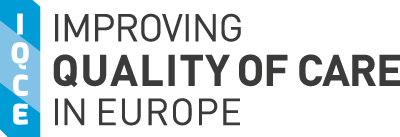
User engagement and the role of mHealth in self-management of diabetesReal-world evidence from the Cornerstones4Care® app
24 September 2020
"User engagement and the role of mHealth in self-management of diabetes: Real-world evidence from the Cornerstones4Care® app" by Anna-Katharina Böhm, Morten Lind Jensen, Mads Reinholdt Sørensen and Tom Stargardt.
Background: Patient support apps have risen in popularity and provide novel opportunities in self-management of diabetes. Such apps offer patients to play an active role in monitoring their condition, therefore increasing their own treatment responsibility. Although many health apps require active user engagement to be effective, there is little evidence exploring engagement with mobile health (mHealth).
Objective: It is the aim of this study to analyze how intensively users engage with mHealth for diabetes and identify patient characteristics that are associated with engagement.
Methods: The analysis is based on real world data obtained by Novo Nordisk's Cornerstones4Care® Powered by Glooko diabetes support app. User engagement was assessed as the number of active days, and using measures expressing the persistence, longevity and regularity of interaction within the first 180 days of use. Beta regressions were estimated to assess associations between user characteristics and engagement outcomes for each module of the app.
Results: 9051 individuals initiated use after registration and could be observed for 180 days. Amongst these, 55% used the app for one specific purpose. The average user activity ratio varied from 0.05 (medication, food) to 0.55 (continuous glucose monitoring), depending on the module of the app. Average user engagement was lower if modules required manual data entries, although initial uptake was higher for these modules. Regression analyses further reveal that although more women registered the app (57%), they engaged significantly less with it. Older people and users recently diagnosed tended to use the app more actively.
Conclusions: Strategies to increase or sustain use of apps and availability of health data may target mode of data collection and content design, but should take into account privacy concerns of the users. Users' engagement was determined by various user characteristics, indicating that particular patient groups should be targeted or assisted when integrating apps into self-management of their disease.
